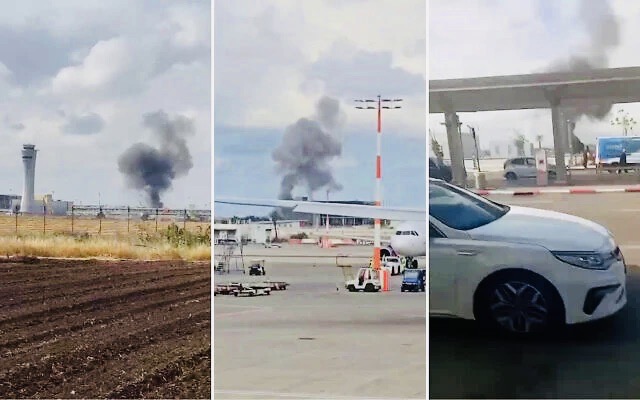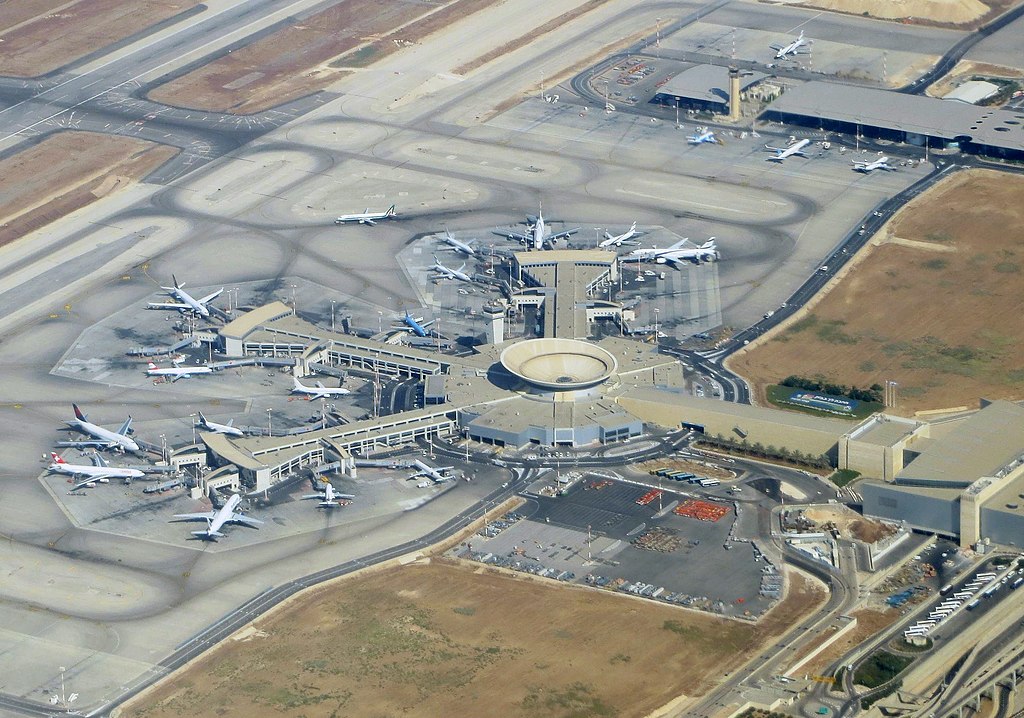The Houthis, Israel’s ferocious enemy and Iran’s proxy, struck a raw nerve on the morning of May 4, forcing Israel to respond almost immediately.
They fired a ballistic missile from distant Yemen that crashed into an orange grove perilously close to Ben Gurion Airport, one of Israel’s most strategic sites.
The projectile left a big crater and metal fragments in the area. Four people were injured and two others were hurt as they ran for cover.

It was the most serious Israel-Houthi incident since last July, when a Houthi missile aimed at Tel Aviv slammed into an apartment building near the U.S. consulate and killed one of its residents.
Neither Israel’s vaunted Arrow defence system, nor the United States’ advanced THAAD defence battery, which has been stationed in Israel since last year, succeeded in downing the latest missile launched by the Houthis.
There were immediate consequences. Outbound flights were temporarily suspended. Major airlines, ranging from Lufthansa and Air France to Delta and Wizz Air, cancelled scheduled flights to Tel Aviv. Only a few foreign airlines were still flying to Israel.
Ever since the eruption of the war in the Gaza Strip 18 months ago, foreign airlines such as British Airways, Ryanair and United Airlines have repeatedly cancelled and resumed their flights to and from Israel.
In a video statement underscoring the psychological blow the Houthis inflicted on Israel yesterday, Houthi spokesman Yahya Saree gloated over its failure to intercept the missile and advised airlines to avoid its international airport. He said that the Houthis have imposed an “aerial embargo” on Israel and that attacks against the airport would continue.

Hamas, a Houthi ally, praised the attack.
This was the fifth missile barrage directed against Israel by the Houthis in some 48 hours. It triggered sirens in Jerusalem, Haifa and Israeli communities near the Dead Sea, but all the missiles were intercepted.
Since March 18, when Israel broke the six-week ceasefire in Gaza and resumed its ground and air offensive against Hamas, the Houthis have launched almost 30 missiles and several drones at Israel. About half triggered sirens and were shot down, while the others fell short.
The Houthis, whose chilling slogan is “Death to America, Death to Israel, A Curse on the Jews,” began attacking Israel and international maritime traffic in the Red Sea in November 2023 out of solidarity with Hamas.
Houthi attacks started about a month after Hamas terrorists stormed into southern Israel, killing 1,200 people and abducting 251 Israelis and foreigners.
These events sparked the Israel-Hamas war, which may yet intensify if Israel decides to launch a major offensive in Gaza. Its objectives would be two-fold: to destroy Hamas’ remaining military capabilities and free the rest of the hostages.
Israel responded to yesterday’s Houthi attack by bombing the port of Hodeidah, a concrete factory near the city of Bajil, and Houthi infrastructure along the coast of Yemen.
It was Israel’s sixth strike on Yemen since last summer and the first since January.
Prime Minister Benjamin Netanyahu had vowed to retaliate and to hit the Houthis’ patron and arms supplier, Iran, Israel’s deadliest foe.
“We, along with the entire world, are under threat from the Houthis,” he said. “We will not tolerate it and will take very strong retaliatory action against them. We will always remember that they acted under the orders and with the support of their patron, Iran. We will do what needs to be done to deliver a proper warning to Iran that we cannot tolerate such acts.”
Defence Minister Israel Katz had delivered a tougher response. “Whoever harms us will be harmed by us seven-fold,” he said.
Now that Israel has retaliated against the Houthis, Netanyahu and Katz are under pressure to strike Iran, whose anti-Israel Axis of Resistance includes the Houthis.
“This is Iran,” said Benny Gantz, the leader of a centrist opposition party and the former minister of defence. “Iran is the one firing ballistic missiles at the state of Israel, and it must bear the responsibility.”
Since last April, in reaction to two Iranian missile and drone strikes, the Israeli Air Force has struck Iran twice, disabling its anti-aircraft batteries.
Although Israeli aircraft have bombed Houthi targets in Yemen half a dozen times, the Houthis remain undeterred.
Yesterday, U.S. President Donald Trump threatened to hold Iran responsible for Houthis attacks.
“Every shot fired by the Houthis will be looked upon, from this point forward, as being a shot fired from the weapons and leadership of IRAN,” he wrote in a post on his Truth Social social media platform. “IRAN will be held responsible, and suffer the consequences, and those consequences will be dire!”
Trump issued this warning against the backdrop of U.S.-Iran talks to revive the 2015 nuclear agreement, from which he withdrew unilaterally in 2018, during his first term as president.
Several days ago, U.S. Defence Secretary Pete Hegseth warned Iran it would face dire consequences for supporting the Houthis.

Iranian government officials unconvincingly claim that the Houthis act independently of Iran.
The Iranian Foreign Ministry, in a statement, said, “The actions of the Yemenis in support of the Palestinian people was an independent decision stemming from their feeling of solidarity.”
Since March, the U.S. has struck more than 1,000 targets in Yemen, focusing on air defence systems, command-and-control centers, and advanced weapons manufacturing facilities and arms storage sites.
Judging by yesterday’s incident around Ben Gurion Airport, the Houthis remain utterly defiant and impervious to the U.S. bombing campaign.
